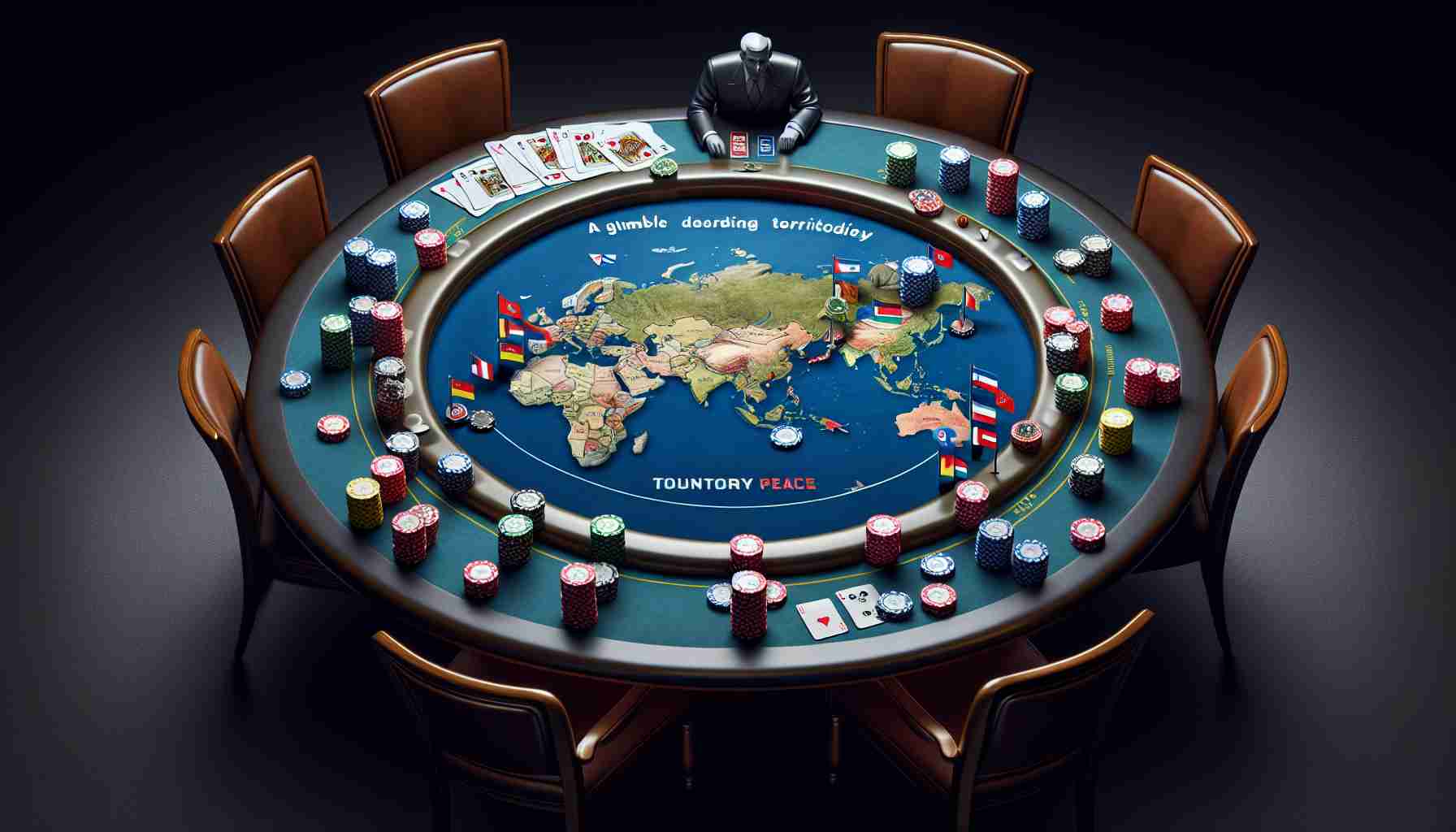- Kyiv is at a pivotal moment as Ukraine navigates peace talks with Russian involvement, under the changing diplomatic approach from the US.
- President Volodymyr Zelensky is determined to ensure Ukraine’s participation in discussions, advocating for national sovereignty and potential peace.
- US President Trump’s new approach opens negotiations with Russia, a shift from previous policies requiring Ukraine’s full presence.
- Economic considerations, including Ukraine’s rare earth elements, play a key role in securing US support.
- Zelensky expresses willingness to negotiate, even considering territorial concessions, amid struggles with national morale after years of conflict.
- The uncertainty of preventing future Russian aggression remains a significant challenge, affecting regional and international dynamics.
Amid the chill of a protracted winter, the city of Kyiv stands at a pivotal crossroads. Ukrainian President Volodymyr Zelensky finds himself navigating a delicate diplomatic dance as he receives a crucial phone call from US President Donald Trump. Trump’s latest decision to open peace negotiations with Russian President Vladimir Putin marks a dramatic shift from America’s previous stance, insisting on Ukraine’s full presence at any peace talks—a position now softened under Trump’s administration.
Zelensky, determined to steer the course for peace, advocates for Ukraine’s involvement in these conversations, echoing a promise to work closely with the US to end the relentless waves of Russian aggression. The stakes are towering for Ukraine, where the fervor for national sovereignty calms yet remains unextinguished.
His words reveal a willingness to negotiate, even suggesting potential territorial concessions. The struggle for Ukrainians is palpable, with morale faltering under the weight of almost three years of conflict. Still, Zelensky boldly signals readiness for direct discussions with Putin, seeking to end the sorrowful toll the war has wrought on his nation.
Yet, a looming question casts shadows over the peace prospects: how to prevent future Russian incursions. This uncertainty reverberates in conversations and across borders.
In the heart of Kyiv, American Treasury Secretary Scott Bessent arrives, underscoring the economic underpinnings of this uncertain peace. An emerging framework crystalizes where Ukraine’s rare earth elements, highly prized by global tech industries, become the new currency for securing American support.
The winds of diplomacy are changing, and with them, Zelensky must weigh the cost of peace against the price of freedom, revealing a saga deeply anchored in the complex dance of geopolitics.
Unveiling Diplomatic Strategies: Navigating Ukraine’s Path Toward Peace
How-To Steps & Life Hacks: Understanding Diplomatic Negotiations
1. Stay Informed: Keep abreast of global news through reputable sources such as The New York Times or BBC for updates on international diplomacy.
2. Prepare Thoroughly: Research the involved parties’ historical contexts. For instance, understanding Ukraine’s historical ties with Russia and the U.S. aids in grasping current dynamics.
3. Engage in Dialogue: Foster communication channels to ensure transparency and develop mutual respect, similar to Zelensky’s intent to involve Ukraine directly in peace talks.
Real-World Use Cases: The Role of Ukraine’s Resources
– Economic Leverage: Ukraine’s rare earth elements can play a critical role in negotiations, providing leverage to obtain economic or military support from powerful allies like the United States.
Market Forecasts & Industry Trends: Implications of Rare Earth Elements
– There’s an anticipated increase in demand for rare earth elements due to the rise of electric vehicles and renewable energy technologies, which might bolster Ukraine’s strategic importance in global markets.
Reviews & Comparisons: Past Peace Negotiation Outcomes
– Comparing previous peace negotiations, such as the Minsk agreements, can provide valuable insights into what strategies may succeed or fail in the current scenario.
Controversies & Limitations: Territorial Concessions
– Controversy: Territorial concessions often provoke nationalistic backlash, potentially threatening a leader’s standing both domestically and internationally.
– Limitation: Concessions may set a precarious precedent for future conflicts, possibly inviting increased aggression.
Features, Specs & Pricing: Ukraine’s Rare Earth Elements
– Features: These elements are critical in manufacturing electronics, lasers, magnets, and various defense technologies.
– Market Value: The demand for rare earth elements has historically been volatile, but the rising tech industry continues to drive their prices upward.
Security & Sustainability: Safeguarding Against Future Conflicts
– The focus should be on building robust defense systems and diversifying alliances to fortify security and deter future incursions.
Insights & Predictions: Future Geopolitical Dynamics
– Analysts predict a shift in global power balances, with Ukraine potentially becoming a pivotal player if it successfully harnesses its natural resources strategically in negotiations.
Tutorials & Compatibility: Understanding Geopolitical Dynamics
– Online courses on international relations and diplomacy, such as those available from Coursera, can provide valuable knowledge on the complex interplay of global politics.
Pros & Cons Overview: Peace Negotiations
Pros:
– Potential cessation of conflict and loss of life.
– Improved economic conditions through international support.
Cons:
– Risk of compromising national sovereignty.
– Uncertainty in ensuring long-term peace without further aggression.
Actionable Recommendations
1. Diversify Alliances: Strengthen ties with multiple international partners to avoid over-reliance on a single nation.
2. Enhance Defense Capabilities: Invest in cybersecurity and military defense to prepare for future uncertainties.
3. Develop Economic Strategies: Leverage rare earth elements for sustainable economic growth and national strength.
For readers interested in learning more about geopolitical strategies and negotiations, visit Council on Foreign Relations for comprehensive analyses and expert discussions.
